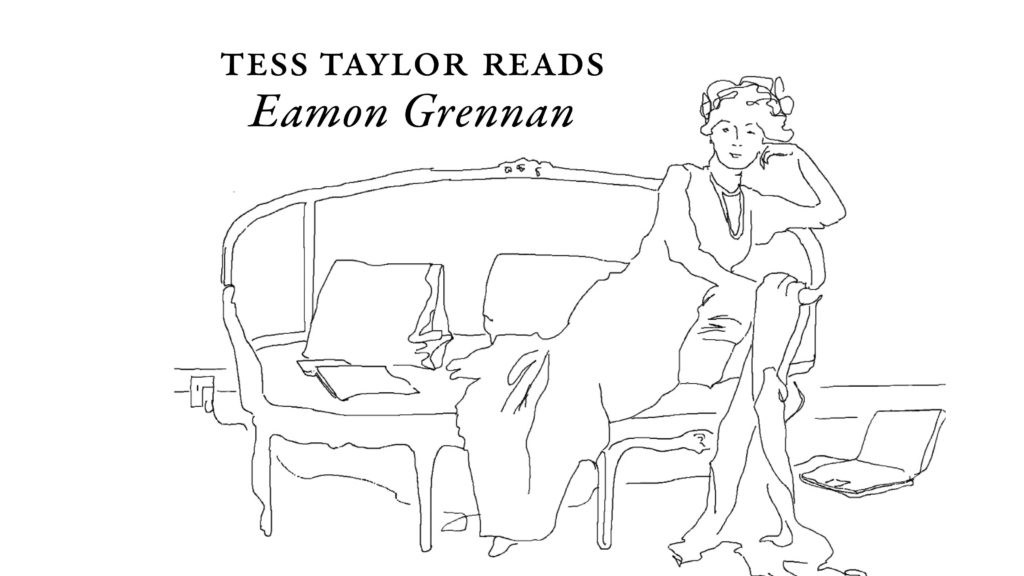In this series of videograms, poets read and discuss the poems getting them through these strange times—broadcasting straight from their couches to yours. These readings bring intimacy into our spaces of isolation, both through the affinity of poetry and through the warmth of being able to speak to each other across the distances.
“Musical Interlude”
by Eamon Grennan
Issue no. 154 (Spring 2000)
Through the voice, the soul’s work is done.
Janet BakerCragflower. Music of the sea.
The flower still standing
in its tormented place.Morning full of voices. Mourning too.
Mahalia singing On My Way
and making it to Cay-nen Land.On a rock, sit, listen to Bjorling
sing Only a Rose
over your friend’s ashes.Chaffinch on the clothesline—
rosy biscuit breast aglow—
will any minuteconfirm himself in song.
And listen,
the thin single noteof the sandpiper in lakedusk:
beige and bright white,
precise bill opening, closing:only the one note
but enough to cut across
the whole valleyas a nightwind shakes
the stiff green reeds to whispering.
Pain, even a single grain of itanywhere in the body
is a kind of stop and focus,
turning us to pure attention,as may happen
with some small invisible
winged thing singing in the thick of hedges.
Tess Taylor is the author of the chapbook The Misremembered World, The Forage House, and Work & Days. In spring 2020 she published two books of poems: Last West, part of Dorothea Lange: Words & Pictures exhibition at the Museum of Modern Art, and Rift Zone, from Red Hen Press.
from The Paris Review https://ift.tt/2KQOuVA

Comments
Post a Comment